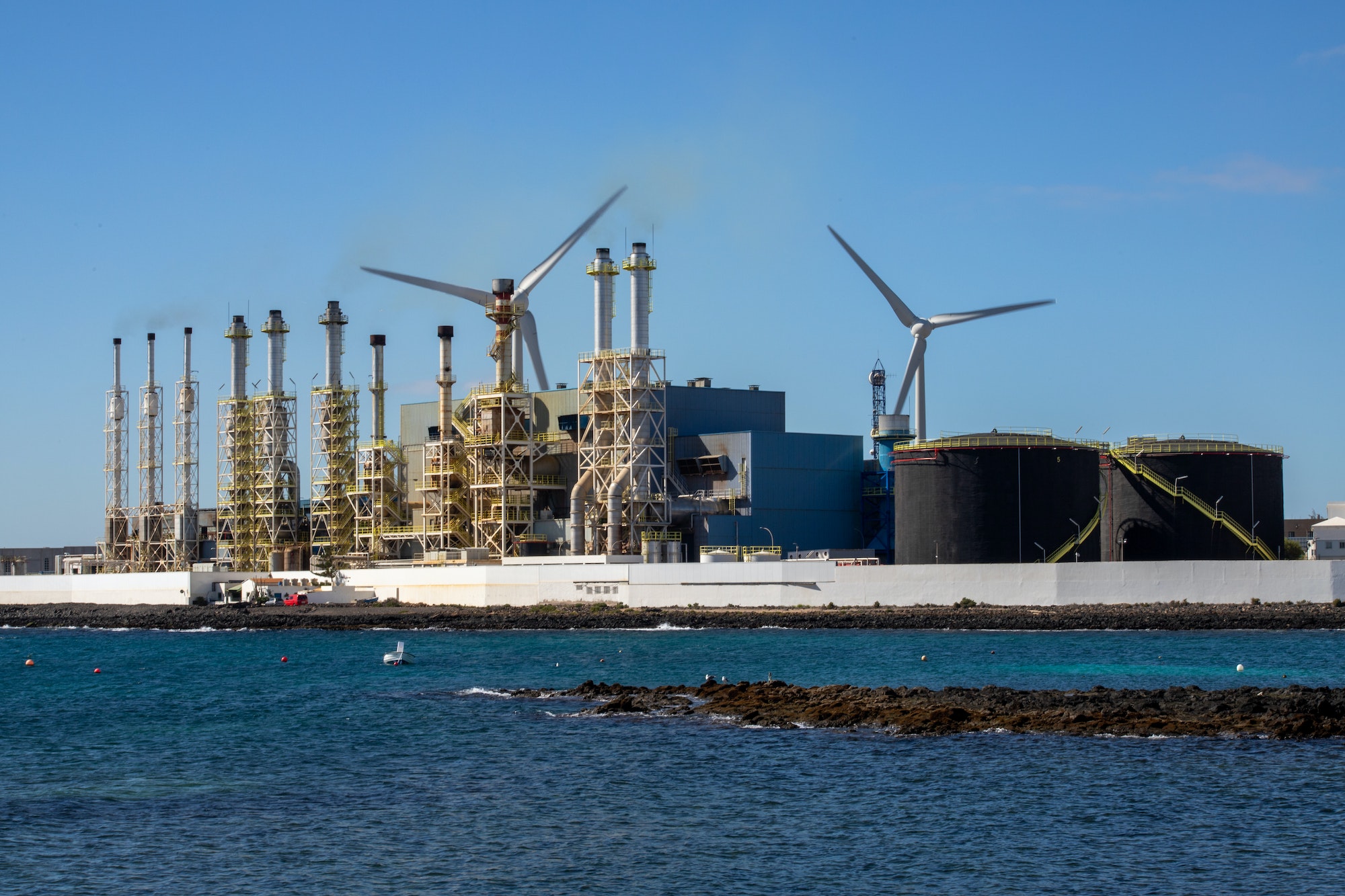Unleashing the Power of the Sun: What Are the Best Solar Energy Storage Solutions for Your Home?
Solar energy has emerged as a game-changer in the quest for sustainable and renewable power sources. With the sun’s abundance, harnessing solar energy has become increasingly accessible to homeowners and businesses alike. However, a crucial challenge remains – storing solar energy for use during non-sunny hours. This article explores the world of solar energy storage solutions, examining cutting-edge technologies that can revolutionize how we utilize solar power. Are you ready to unlock the sun’s full potential and power your home efficiently? Let’s dive in!
1. The Need for Solar Energy Storage
While solar panels efficiently convert sunlight into electricity during sunny hours, energy production is intermittent and weather-dependent. The surplus energy generated during sunny periods must be stored during cloudy days or at night. This need for reliable solar energy storage solutions has paved the way for innovative technologies to emerge.
2. Batteries: The Backbone of Solar Energy Storage
Battery storage systems have emerged as the backbone of solar energy storage solutions. These systems enable homeowners to utilize the extra energy generated by solar panels when needed by storing them in batteries. Here are some popular battery options for solar energy storage:
Lithium-Ion Batteries: Widely used in various applications, including electric vehicles and electronics, lithium-ion batteries are also popular for solar energy storage. They offer high energy density, longer lifespans, and low maintenance.
Lead-Acid Batteries: While not as efficient as lithium-ion batteries, lead-acid batteries remain a cost-effective option for solar energy storage. They are suitable for smaller solar installations and can be found in both flooded and sealed forms.
Flow Batteries: Flow batteries utilize liquid electrolytes stored in external tanks, offering scalability and flexibility. They are gaining popularity for larger-scale solar energy storage applications.
3. Grid-Tied Solar Energy Storage
Grid-tied solar energy storage solutions allow homeowners to remain connected to the grid while also storing excess energy for later use. In this setup, the surplus solar energy is first used to power the home’s electrical needs, and any excess is fed back into the grid, earning credits or compensation from the utility company. During times when solar production is insufficient, homeowners can draw energy from the grid or use the stored energy from their battery system.
4. Off-Grid Solar Energy Storage
Off-grid solar energy storage solutions are ideal for areas with limited or no access to the grid. In this setup, solar panels generate energy during the day, which is stored in batteries for nighttime use. Off-grid systems require robust battery storage and efficient energy management to ensure uninterrupted power supply.
5. Smart Energy Management
Efficient energy management is vital for optimizing solar energy storage solutions. Smart energy management systems can monitor energy production, consumption patterns, and battery storage levels. By evaluating this data, these systems can determine the best times to use stored energy, draw from the grid, and feed extra energy back into the grid. This intelligent management minimizes waste and maximizes the utilization of solar energy.
6. Power Backup and Resilience
Solar energy storage solutions can provide power backup during grid outages, making them valuable for enhancing resilience during emergencies or natural disasters. In these instances, the stored solar energy can keep critical appliances and essential systems running, providing peace of mind and added safety.
7. Considerations for Choosing Solar Energy Storage Solutions
When selecting the right solar energy storage solution for your home, consider the following factors:
Energy Needs: Evaluate your household’s energy consumption to determine the battery capacity required for your storage system.
Battery Lifespan: To find the most cost-effective solution for your needs, compare the upfront cost with the battery technology’s lifetime.
Scalability: If you plan to expand your solar installation in the future, choose a storage system that allows for easy scalability.
Warranty and Support: Check the warranty and after-sales support offered by the storage system manufacturer to ensure reliable maintenance and service.
Advancements and Benefits of Solar Energy Storage Solutions
1. Advancements in Solar Energy Storage Technologies
In recent years, significant advancements in solar energy storage technologies have made them more efficient, cost-effective, and accessible. Some notable advancements include:
Solid-State Batteries: Compared to conventional lithium-ion batteries, solid-state batteries provide a higher energy density and better safety. These batteries perform better and reduce the possibility of leaking by using solid electrolytes instead of liquid ones.
Redox Flow Batteries: One kind of flow battery, called a redox flow battery, has drawn interest for its capacity to store a lot of energy and its promise for long lifespans. These batteries use vanadium or other redox-active materials in the electrolyte, providing scalability and flexibility for grid-scale energy storage.
Hybrid Energy Storage Systems: In order to maximize performance, hybrid systems incorporate various energy storage technologies, including lithium-ion batteries and ultracapacitors. Ultracapacitors offer high power density and fast charging and discharging capabilities, complementing the energy storage capabilities of batteries.
Home Energy Management Systems: Advanced home energy management systems use artificial intelligence algorithms to optimize energy consumption and storage based on real-time data. These systems can learn the household’s energy usage patterns and adjust the solar energy storage accordingly, maximizing energy efficiency.
Community Energy Storage Projects: In some regions, community-based solar energy storage projects are emerging. These projects involve shared energy storage facilities that serve multiple households or businesses, promoting energy sharing and reducing overall costs.
2. Economic Benefits of Solar Energy Storage
Solar energy storage solutions offer several economic benefits for homeowners and businesses:
Energy Independence: With solar energy storage, homeowners can reduce their reliance on the grid and stabilize their energy costs. This independence from fluctuating utility rates provides long-term financial security.
Grid Interaction: Homeowners can feed extra energy back into the grid using grid-tied solar energy storage, receiving credits or payments from the utility provider. This process, known as net metering, can lead to potential savings on electricity bills.
Demand Charge Management: Commercial entities with high demand charges can use solar energy storage to manage their peak energy consumption. By drawing stored energy during peak demand periods, businesses can reduce demand charges and lower overall electricity costs.
Resilience during Power Outages: Solar energy storage provides a reliable power backup during grid outages, ensuring continuous energy supply for critical appliances and essential functions. This resilience is especially valuable during emergencies and natural disasters.
3. Environmental Benefits of Solar Energy Storage
The environmental benefits of solar energy storage solutions are significant and align with the goals of sustainable energy use:
Reduced Carbon Footprint: Homeowners and companies can lower their dependency on fossil fuels and, as a result, their carbon footprint by effectively storing and using solar energy. A greener future is made possible through solar energy, a clean and sustainable energy source.
Integration with Renewables: Solar energy storage allows for better integration of other renewable energy sources, such as wind and hydropower. Combining various renewable sources with storage technology creates a more reliable and stable energy grid.
Peak Load Management: Energy demand often spikes during peak hours, leading to the use of conventional power plants that emit higher levels of greenhouse gases. Solar energy storage can offset peak demand, reducing the need for fossil fuel-based power plants during these periods.
4. Overcoming Challenges in Solar Energy Storage
While solar energy storage solutions offer numerous benefits, there are still some challenges that need to be addressed:
Costs: The upfront costs of solar energy storage systems, including batteries and inverters, can be a significant barrier for some homeowners. However, costs are expected to decrease as technology advances and economies of scale are achieved.
Battery Lifespan and Recycling: Although battery technology has improved, the lifespan of batteries remains a concern for long-term use. Proper recycling and disposal of batteries at the end of their lifespan are essential to minimize environmental impacts.
Energy Density and Scalability: While advancements have been made, some battery technologies still need help with energy density and scalability for large-scale energy storage applications. Continued research and development are needed to address these limitations.
Weather-Dependent Energy Production: Solar energy production is weather-dependent, which means that during extended periods of cloud cover or darkness, stored energy may need to be supplemented with energy from the grid.
4. Choosing the Right Solar Energy Storage Solution
When selecting a solar energy storage solution, consider the following factors:
Energy Needs: Assess your household or business’s energy consumption patterns to determine the required storage capacity.
Space Availability: Consider the available space for installing the storage system, especially if you have limited space or live in an urban area.
Budget: Evaluate your budget and consider the long-term savings and benefits of your solar energy storage solution.
Future Expansion: If you plan to expand your solar installation or increase energy storage capacity in the future, choose a solution that allows for easy scalability.
Battery Technology: Compare different battery technologies and choose the one that best aligns with your energy storage requirements, budget, and environmental considerations.
FAQs (Frequently Asked Questions)
Q1. How much does a solar energy storage system cost?
A1: The cost of a solar energy storage system varies depending on factors such as the capacity of the system, the type of batteries used, and installation costs. A domestic solar energy storage system might cost anywhere from $5,000 and $15,000 on average.
Q2. How long do solar batteries typically last?
A2: The lifespan of solar batteries varies depending on the technology and usage. Lead-acid batteries may have a shorter lifespan of between 5 and 10 years, whereas lithium-ion batteries, which are frequently used in solar energy storage systems, can last between 10 & 15 years or more.
Q3. Can solar energy storage systems be used with existing solar panel installations?
A3: Solar energy storage systems can be retrofitted to existing solar panel installations. A qualified solar installer can assess your current setup and recommend the most suitable energy storage solution for integration.
Q4. How much storage capacity do I need for my home?
A4: The storage capacity needed depends on your energy consumption, solar panel system size, and energy usage patterns. A professional solar installer can perform an energy audit and recommend the appropriate storage capacity for your home.
Q5. Are there government incentives or rebates for solar energy storage installations?
A5: In many regions, government incentives and rebates are available for solar energy storage installations. These rebates can reduce the up-front costs of establishing a solar energy storage system and may differ based on your area. It is recommended to check with local authorities or consult a solar energy provider to explore available incentives.
Conclusion
Solar energy storage solutions have transformed the way we harness and utilize solar power. With innovative battery technologies, grid-tied and off-grid setups, and smart energy management systems, homeowners can now unlock the sun’s full potential and power their homes efficiently. Investing in reliable solar energy storage makes us move one step closer to a sustainable and greener future. So, embrace the power of the sun and explore the diverse range of solar energy storage solutions to elevate your home’s energy efficiency and reduce your carbon footprint. Visit our website ContractorHomeQuotes.com to learn more.








